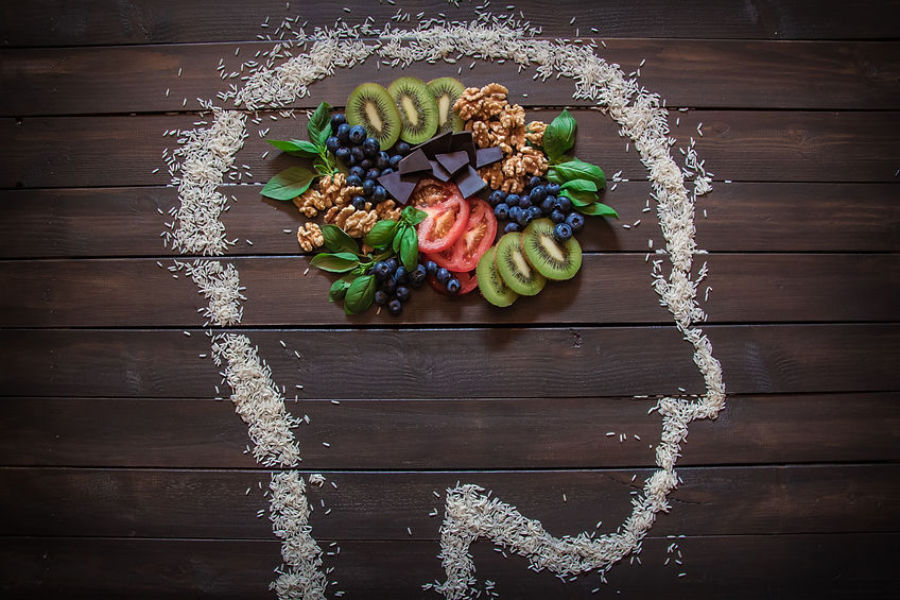In this article we are going to begin to explore this emotional connection and why it influences behaviour as well as bringing awareness to the social role that food plays.
Food can impact us in many ways and we can make food choices for many reasons. What is clear is that there is a strong emotional and social connection to food.
In clinical practice I find that many people have the knowledge of what food to eat to support their health, or at least have a pretty good understanding. However, their nutrition choices don’t always reflect that knowledge.
In truth food is not just about understanding what we should eat, it is also about appreciating the connection between nutrition, our thoughts and emotions and social interactions.
Emotions/feelings are an extremely strong trigger for food choices. From a young age food becomes connected to a variety of emotions and social interactions. Whether sad, happy, celebrating, commemorating, lonely, angry etc food is often used to support or cope with these emotions and circumstances. This relationship can start well before we are even in control of our own diet, influenced by our parents choices for us.
Primitively we as humans do a lot of things to either seek pleasure or avoid pain. Eating is no different. On a basic level we can experience “pain” in the form of hunger and we seek pleasure in the form of sustenance (food & drink). Now consider when emotions get involved, we begin to avoid other forms of pain more related to emotions and because we have learnt that food or drink can provide pleasure we start to use these substances for reasons beyond just hunger.
We often find ourselves stuck in a bit of a pleasure trap when it comes to food, especially the types of food that trigger off the reward centres in the brain.
Additional viewing – The Pleasure Trap by Douglas Lisle:
This is not to say that we should not have an emotional connection to food, that would be impossible, and let’s be honest it’s nice to have a celebratory meal and sometimes it’s just nice to eat something tasty, irrespective of how healthy it is. The question here is, are you making a conscious choice to behave in that way or are you acting on impulse driven by an emotion or a circumstance/habit because of a certain environment you find yourself in?
This is where mindfulness can play a significant role, changing how we respond to feelings.
Additional viewing – A simple way to break a bad habit by Judson Brewer:
What I have written above is not just relevant to perceived overeating or indulgence, it is also relevant to food avoidance as well. In both cases we choose to use or avoid food to avoid the pain of certain emotions. Our perception is that it will help in some way to act in that way, yet the pleasure and avoidance of pain is often short-lived and so the cycle repeats itself and the underlying issues remain, something that is not being dealt with.
How do you know what your emotional relationship with food is like?
Here are few questions to bring some awareness to this area. Take some time to think about these questions and answer them as best as you can.
- Do you use food to enhance pleasure? If so, how do you do this?
- Do you use food to avoid pain, such as in the form of loneliness or anger? Does that work? Or do you end up feeling more dissatisfied?
- Does eating certain foods make you feel more anxious, guilty or ashamed? Do you judge yourself for eating these foods?
- Do you turn to food in an attempt to fulfil much deeper cravings simply because you are dissatisfied with the other areas in your life? Such as work, relationships? If you began to live more in accordance with your highest values, how do you think that would impact your relationship with food?
- What’s your ideal emotional relationship with food?
Did the above questions shed any light on your emotional relationship to food? Acknowledging this relationship is present is probably the first and most powerful step in looking to change that relationship.
The development of a more mindful relationship to food will allow you to make more conscious decisions and start to observe the triggers that lead to food choices that you know are not supporting you with your health or physique goals.
How we can support your relationship with food
We have a team of nutritionists that work both at out clinic in Marylebone, London and online. Some of our team specialise in support clients with their relationship to food and would be happy to provide 1-2-1 support for you.
Equally, you can explore other articles relating to this subject area:
Why We Eat: Exploring your relationship with food, finding balance and flexibility
Are you using foods to self sooth?
Contact Steve Grant Health
To learn more out how Steve Grant Health can assist you on your journey, please fill out the enquiry form below.
Please note that depending on your specific circumstances and goals, Steve may recommend that you work with one of the specialist practitioners within his network of trusted professionals.
If you have been referred by a clinician, please complete the form and ensure that you state who has referred you or have your practitioner email Steve direct to make a referral that way.
Click the button below to open the client enquiry form:
[widgetkit id=”643″]


